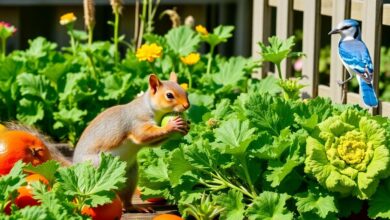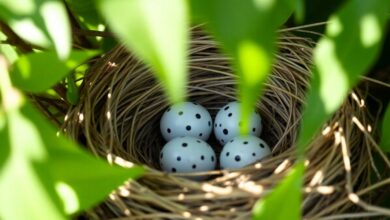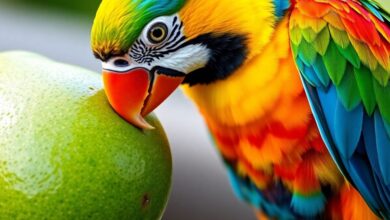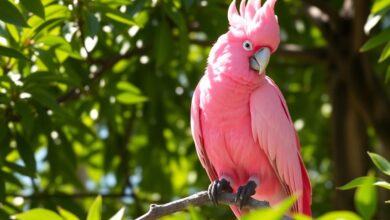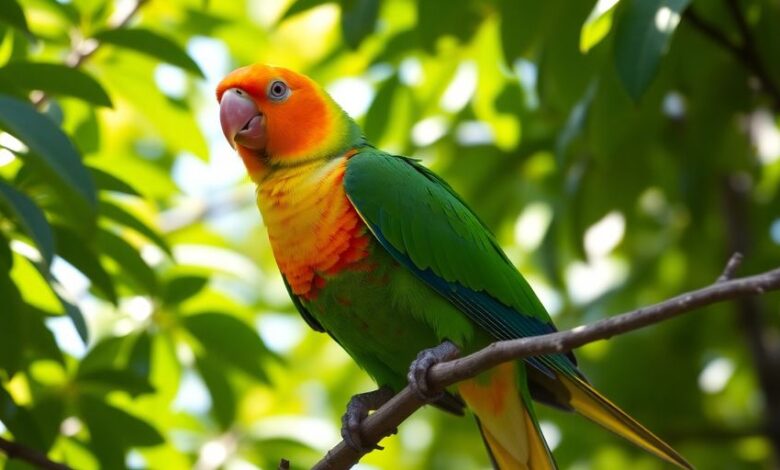
Quaker Parrots, also known as Monk Parakeets, are colorful and lively birds that can be wonderful pets. Knowing how long they typically live can help you take better care of them. With the right diet, environment, and attention, these birds can live for many years, often between 20 to 30 years, and sometimes even longer. Let’s dive into some important insights about their lifespan and how to ensure they have a happy, healthy life.
Key Takeaways
- Quaker Parrots usually live between 20 to 30 years, with some reaching up to 35.
- A balanced diet, including fresh fruits and vegetables, is essential for their health.
- Regular vet check-ups can help catch health issues early.
- Social interaction and mental stimulation are crucial for their well-being.
- Creating a safe and enriching environment can enhance their lifespan.
Understanding the Lifespan of Quaker Parrots

Typical Lifespan Range
Quaker parrots, also known as Monk Parakeets, typically live between 20 to 30 years. With excellent care, some may even reach up to 35 years. This lifespan reflects their adaptability and strong health.
| Condition | Average Lifespan |
|---|---|
| Wild | 15-20 years |
| Pet | 20-30 years |
Factors Influencing Lifespan
Several key factors can affect how long a Quaker parrot lives:
- Diet: A balanced diet is essential, including fruits, vegetables, and seeds.
- Environment: A clean and safe cage with toys keeps them happy.
- Exercise: Regular flying and playtime help prevent obesity.
- Healthcare: Routine vet check-ups are crucial for early disease detection.
Comparing Lifespan in Wild vs. Captivity
In the wild, Quaker parrots face various challenges that can shorten their lifespan. In captivity, with proper care, they can live significantly longer.
Understanding these factors is vital for ensuring your Quaker parrot lives a long and healthy life. By meeting their needs, you can enjoy a rewarding relationship with your feathered friend.
Diet and Nutrition for a Long Life
Essential Nutrients
To help your Quaker Parrot live a long and healthy life, it’s important to provide a balanced diet. Here are the key components:
- Pellets: Make up 60-70% of their diet. Choose high-quality pellets without artificial colors.
- Fresh Vegetables: Offer leafy greens, carrots, and bell peppers for essential vitamins.
- Fruits: Serve fruits like apples and berries in moderation for vitamins, but be cautious of sugar content.
- Seeds and Nuts: Treats should be given sparingly as they are high in fat.
- Grains: Include cooked grains like rice and quinoa for added fiber.
Foods to Avoid
Certain foods can be harmful to your Quaker Parrot. Avoid giving them:
- Avocado: Toxic to birds.
- Chocolate: Can cause serious health issues.
- Caffeine: Affects their heart and nervous system.
- Alcohol: Highly toxic.
- Onions and Garlic: Can lead to digestive problems.
- Salty Foods: Excess salt can cause kidney issues.
- Processed Foods: Chips and cookies are not suitable.
Importance of a Balanced Diet
A balanced diet is crucial for your Quaker Parrot’s health. It helps prevent obesity and other health issues. Regular vet check-ups are also important to monitor their health.
A well-fed parrot is a happy parrot. Proper nutrition can significantly extend their lifespan.
By providing the right foods and avoiding harmful ones, you can help your Quaker Parrot enjoy a longer, healthier life. Remember, their diet is a key factor in their overall well-being!
Health and Wellness
Ensuring the health and wellness of your Quaker parrot is essential for a long life. These lively birds need proper care and attention to thrive. Here are some key areas to focus on:
Common Health Issues
Quaker parrots can face several health challenges. Being aware of these can help you catch problems early:
- Respiratory Infections: Look for signs like sneezing or nasal discharge.
- Feather Plucking: This can happen due to stress or boredom.
- Psittacosis: A bacterial infection that can affect both birds and humans.
- Obesity: Often caused by a poor diet and lack of exercise.
Preventive Care Tips
Taking preventive measures is crucial for your parrot’s health. Here are some tips to keep your bird happy and healthy:
- Balanced Diet: Include fruits, veggies, and pellets in their meals.
- Regular Vet Check-ups: Schedule yearly visits to an avian vet.
- Clean Environment: Keep their cage and surroundings tidy to avoid infections.
- Exercise and Mental Stimulation: Provide toys and activities to keep them active.
Maintaining a healthy lifestyle for your Quaker parrot ensures a long, happy life.
Signs of Aging
As your Quaker parrot gets older, watch for these signs:
- Decreased activity levels
- Changes in eating habits
- Feather quality decline
By paying attention to these aspects, you can help your Quaker parrot live a longer, healthier life. Remember, a happy parrot is a healthy parrot!
Creating the Ideal Living Environment

Cage Setup and Maintenance
To ensure your Quaker parrot thrives, adequate housing is crucial. The cage should be spacious enough for the bird to stretch its wings and fly short distances. A good size is at least 24 inches wide, 24 inches deep, and 30 inches tall. Here are some important features to include:
- Multiple perches of different sizes to promote foot health.
- Food and water dishes that are easy to access and clean daily.
- Safe toys for mental stimulation, rotated regularly to keep your bird engaged.
Importance of Social Interaction
Quaker parrots are social creatures and need regular interaction. Here are some ways to engage with your bird:
- Talk to your parrot daily to build trust.
- Play games like fetch or hide and seek.
- Train them with simple commands to enhance bonding.
Environmental Enrichment
Creating a stimulating environment is key to your parrot’s happiness. Consider the following:
- Variety of toys that encourage foraging and problem-solving.
- Natural light in the room, but avoid direct sunlight.
- Safe space away from kitchen fumes and other hazards.
By providing a safe, stimulating, and comfortable environment, Quaker parrots can lead a healthy, active, and happy life.
In summary, a well-set-up cage, regular social interaction, and environmental enrichment are essential for your Quaker parrot’s well-being. This will help them live a longer, happier life.
Exercise and Mental Stimulation
Daily Exercise Needs
Regular exercise is crucial for your Quaker parrot’s health. Physical activity helps prevent obesity and keeps their muscles strong. Here are some ways to ensure your parrot gets enough exercise:
- Allow supervised flight time in a safe area.
- Provide climbing opportunities with bird-safe ladders and perches.
- Engage in interactive play to keep them active.
Mental Stimulation Activities
Keeping your Quaker parrot mentally stimulated is just as important as physical exercise. Boredom can lead to behavioral issues. Here are some activities to consider:
- Rotate toys regularly to maintain interest.
- Use foraging toys to encourage natural behaviors.
- Introduce puzzle toys to stimulate problem-solving skills.
| Type of Toy | Benefits |
|---|---|
| Foraging Toys | Encourages natural foraging behavior |
| Chew Toys | Helps maintain beak health |
| Interactive Toys | Promotes social interaction |
Benefits of Training and Play
Training your Quaker parrot can enhance their mental stimulation and strengthen your bond. Here are some tips for effective training:
- Start training early when they are young.
- Keep sessions short, around 10-15 minutes.
- Use positive reinforcement like treats and praise.
A happy Quaker parrot is one that is both physically active and mentally engaged. Providing a mix of exercise and stimulation is key to their well-being.
By ensuring your Quaker parrot has plenty of opportunities for exercise and mental challenges, you can help them lead a longer, healthier life.
Breeding and Reproduction

Breeding Age and Season
Quaker parrots usually become sexually mature between 1 and 2 years of age. The breeding season typically happens once a year, often in spring or early summer, depending on where you live.
Nesting Behavior
In the wild, Quaker parrots are known for their unique nesting habits. They build large, communal nests using twigs and branches. In captivity, it’s important to provide a suitable nesting box that is spacious enough for the bird to move around and add nesting materials.
Egg Laying and Incubation
A female Quaker parrot generally lays 4 to 8 eggs in a clutch. The incubation period lasts about 24 days, during which the female stays mostly on the nest. The male often helps by feeding and caring for the female during this time.
Raising the Chicks
Chicks are born altricial, meaning they rely completely on their parents for warmth and food. Both parents usually help feed the chicks. The chicks typically leave the nest around 6 weeks of age but may still depend on their parents for a few more weeks.
Considerations for Breeding
- Breeding Quaker parrots requires a commitment to ongoing care for both the parents and the chicks.
- Be prepared for challenges, such as health issues in chicks or the need for hand-rearing if the parents can’t care for them.
- Responsible breeding practices are essential, including ensuring genetic diversity and avoiding inbreeding.
Breeding Quaker parrots can be a rewarding experience, but it also requires careful consideration and planning. Understanding their breeding habits and requirements is essential for anyone interested in breeding these birds.
Conclusion
In summary, knowing how long a Quaker parrot can live is key to giving it the best care possible. These lively birds can live between 20 to 30 years, and with the right attention, some may even reach 35 years. To help your Quaker parrot thrive, focus on providing a balanced diet, regular vet visits, and plenty of mental stimulation. By meeting their needs, you can enjoy a long and joyful friendship with your feathered companion.
Frequently Asked Questions
What is the average lifespan of a Quaker Parrot?
A Quaker Parrot usually lives between 20 to 30 years, and with good care, some can even reach 35 years.
What factors can affect a Quaker Parrot’s lifespan?
Factors like diet, living environment, exercise, and regular vet check-ups can greatly influence how long a Quaker Parrot lives.
How can I ensure my Quaker Parrot has a healthy diet?
Feed your Quaker Parrot a mix of pellets, fresh fruits, and vegetables while avoiding harmful foods like avocado and chocolate.
What are some common health issues in Quaker Parrots?
Common health problems include respiratory infections, obesity, and feather plucking, often caused by stress or poor nutrition.
How can I create a good living environment for my Quaker Parrot?
Provide a spacious cage, plenty of toys, and ensure they have social interaction and mental stimulation to keep them happy.
What signs indicate that my Quaker Parrot is aging?
As they age, Quaker Parrots may become less active, show duller feathers, and seek more attention from their owners.


